Jimmie Driftwood Americana (3-CD Deluxe Box Set)

* incl. VAT / plus shipping costsDepending on the country of delivery, the VAT at checkout may vary.
Ready to ship today,
delivery time** appr. 1-3 workdays
- catalog number: BCD15465
- weight in Kg 1.1
Jimmie Driftwood: Americana (3-CD Deluxe Box Set)
Justly renowned as the writer of The Battle Of New Orleans, Jimmie Driftwood was a true maverick. He was an Arkansas schoolteacher who wrote songs to illustrate his classes. He had a sure grasp of history, a rough untutored voice, and he played homemade instruments. His 82 RCA recordings (complete here) are a storehouse of American history and folklore, set to some of the catchiest melodies around. In addition to the complete and uncensored Battle of New Orleans, there's such folk and country classics as Tennessee Stud, Arkansas Traveler, Sal's Got A Sugarlip, Billy Yank And Johnny Reb, I'm A poor Rebel Soldier, and
First Covered Wagon. If only all history was this enjoyable!
Article properties: Jimmie Driftwood: Americana (3-CD Deluxe Box Set)
-
Interpret: Jimmie Driftwood
-
Album titlle: Americana (3-CD Deluxe Box Set)
-
Genre Country
-
Label Bear Family Records
- Edition 2 Deluxe Edition
-
Artikelart Box set
-
EAN: 4000127154651
- weight in Kg 1.1
| Driftwood, Jimmie - Americana (3-CD Deluxe Box Set) Box set 1 | ||||
|---|---|---|---|---|
| 01 | Unfortunate Man | Jimmie Driftwood |
|
|
| 02 | Fair Rosamond's Bower | Jimmie Driftwood |
|
|
| 03 | Soldier's Joy | Jimmie Driftwood |
|
|
| 04 | Country Boy | Jimmie Driftwood |
|
|
| 05 | I'm Too Young To Marry | Jimmie Driftwood |
|
|
| 06 | Pretty Mary | Jimmie Driftwood |
|
|
| 07 | Sailor Man | Jimmie Driftwood |
|
|
| 08 | Zelma Lee | Jimmie Driftwood |
|
|
| 09 | Rattlesnake Song | Jimmie Driftwood |
|
|
| 10 | Old Joe Clark | Jimmie Driftwood |
|
|
| 11 | Tennessee Stud | Jimmie Driftwood |
|
|
| 12 | Razorback Steak | Jimmie Driftwood |
|
|
| 13 | First Covered Wagon | Jimmie Driftwood |
|
|
| 14 | The Maid Of Argenta | Jimmie Driftwood |
|
|
| 15 | Bunker Hill | Jimmie Driftwood |
|
|
| 16 | Song Of The Cowboys | Jimmie Driftwood |
|
|
| 17 | Peter Francisco | Jimmie Driftwood |
|
|
| 18 | Four Little Girls In Boston | Jimmie Driftwood |
|
|
| 19 | Slack Your Rope | Jimmie Driftwood |
|
|
| 20 | Run, Johnny, Run | Jimmie Driftwood |
|
|
| 21 | Arkansas Traveler | Jimmie Driftwood |
|
|
| 22 | Damyankee Lad | Jimmie Driftwood |
|
|
| 23 | Chalamette | Jimmie Driftwood |
|
|
| 24 | The Battle Of New Orleans | Jimmie Driftwood |
|
|
| Driftwood, Jimmie - Americana (3-CD Deluxe Box Set) Box set 2 | ||||
|---|---|---|---|---|
| 01 | The Widders Of Bowling Green | Jimmie Driftwood |
|
|
| 02 | Get Along Boys | Jimmie Driftwood |
|
|
| 03 | Sweet Betsy From Pike | Jimmie Driftwood |
|
|
| 04 | Shoot The Buffalo | Jimmie Driftwood |
|
|
| 05 | Song Of The Pioneer | Jimmie Driftwood |
|
|
| 06 | I'm Leavin' On The Wagon Train | Jimmie Driftwood |
|
|
| 07 | Jordan Am A Hard Road To Travel | Jimmie Driftwood |
|
|
| 08 | The Marshall Of Silver City | Jimmie Driftwood |
|
|
| 09 | The Wilderness Road | Jimmie Driftwood |
|
|
| 10 | The Pony Express | Jimmie Driftwood |
|
|
| 11 | Mooshatanio | Jimmie Driftwood |
|
|
| 12 | The Shanty In The Holler | Jimmie Driftwood |
|
|
| 13 | Big River Man | Jimmie Driftwood |
|
|
| 14 | Big John Davy | Jimmie Driftwood |
|
|
| 15 | On Top Of Pikes Peak | Jimmie Driftwood |
|
|
| 16 | Fidi Diddle Um A-Dazey | Jimmie Driftwood |
|
|
| 17 | The Song Of Creation | Jimmie Driftwood |
|
|
| 18 | The Battle Of San Juan Hill | Jimmie Driftwood |
|
|
| 19 | Banjer Pickin' Man | Jimmie Driftwood |
|
|
| 20 | Tucumcari | Jimmie Driftwood |
|
|
| 21 | St. Brendon's Isle | Jimmie Driftwood |
|
|
| 22 | He Had A Long Chain On | Jimmie Driftwood |
|
|
| 23 | Big Hoss | Jimmie Driftwood |
|
|
| 24 | Sal's Got A Sugarlip | Jimmie Driftwood |
|
|
| 25 | Mooshatanio | Jimmie Driftwood |
|
|
| 26 | Ox Driving Song | Jimmie Driftwood |
|
|
| 27 | General Custer | Jimmie Driftwood |
|
|
| 28 | What Was Your Name In The States | Jimmie Driftwood |
|
|
| 29 | Billy The Kid | Jimmie Driftwood |
|
|
| 30 | Jesse James | Jimmie Driftwood |
|
|
| Driftwood, Jimmie - Americana (3-CD Deluxe Box Set) Box set 3 | ||||
|---|---|---|---|---|
| 01 | Won't You Come Along And Go | Jimmie Driftwood |
|
|
| 02 | Rock Of Chickamauga | Jimmie Driftwood |
|
|
| 03 | How Do You Like The Army | Jimmie Driftwood |
|
|
| 04 | Git Along Little Yearlings | Jimmie Driftwood |
|
|
| 05 | Oh Florie | Jimmie Driftwood |
|
|
| 06 | I'm A Poor Rebel Soldier | Jimmie Driftwood |
|
|
| 07 | My Black Bird Has Gone | Jimmie Driftwood |
|
|
| 08 | Goodbye Reb, Y' All Come | Jimmie Driftwood |
|
|
| 09 | On Top Of Shiloh's Hill | Jimmie Driftwood |
|
|
| 10 | When I Swim The Golden River | Jimmie Driftwood |
|
|
| 11 | The Giant Of The Thunderhead | Jimmie Driftwood |
|
|
| 12 | Shanghied | Jimmie Driftwood |
|
|
| 13 | Santy Anny-O | Jimmie Driftwood |
|
|
| 14 | Row Bullies Row | Jimmie Driftwood |
|
|
| 15 | The Land Of The Amazon | Jimmie Driftwood |
|
|
| 16 | What Could I Do? | Jimmie Driftwood |
|
|
| 17 | Driftwood At Sea | Jimmie Driftwood |
|
|
| 18 | In A Cotton Shirt And A Pair Of Dungarees | Jimmie Driftwood |
|
|
| 19 | Davy Jones (Song Of A Dead Soldier) | Jimmie Driftwood |
|
|
| 20 | Sailor, Sailor, Marry Me | Jimmie Driftwood |
|
|
| 21 | The Diver Boy | Jimmie Driftwood |
|
|
| 22 | The Ship That Never Returned | Jimmie Driftwood |
|
|
| 23 | Sailing Away On The Ocean | Jimmie Driftwood |
|
|
| 24 | John Paul Jones | Jimmie Driftwood |
|
|
| 25 | The Bear Flew Over The Ocean | Jimmie Driftwood |
|
|
Jimmie Driftwood
The Battle Of New Orleans
Tennessee Stud
What Color Is The Soul Of A Man
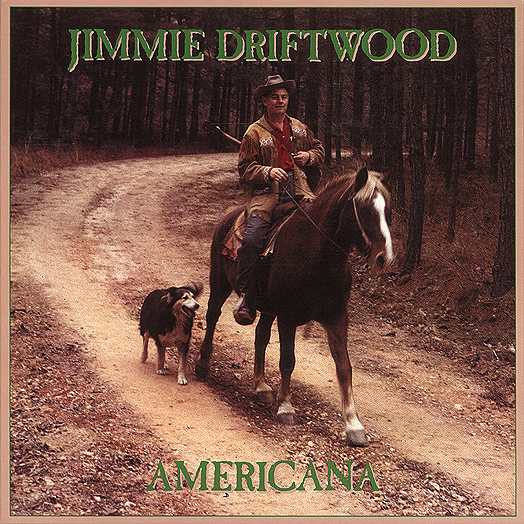 Rooted in the folk music of his native Ozark Mountains, Jimmie Driftwood was a prolific, engaging singer-songwriter. Two of his songs, The Battle Of New Orleans and Tennessee Stud, became standards in the American folk and country music repertoires.
Rooted in the folk music of his native Ozark Mountains, Jimmie Driftwood was a prolific, engaging singer-songwriter. Two of his songs, The Battle Of New Orleans and Tennessee Stud, became standards in the American folk and country music repertoires.
Born James Corbett Morris on June 20, 1907 in Richwood, Arkansas, he absorbed the folk tales and stories of the mountain men, homesteaders, Native Americans and Civil War veterans who settled in the region around Mountain View. His great-grandmother also taught him songs from her Carolina childhood. As a youngster he was given an unusual handmade guitar made by his grandfather. Its neck was made from a fence rail, its sides shaped from an ox yoke, and its front and back came from a bed headboard. While it didn't have much tone, Driftwood used it throughout his performing career.
Graduating from high school in 1928, he attended John Brown College in Siloam Springs. During the height of the Depression he left college and traveled through the Southwest, settling in Phoenix, Arizona, where he sang on a weekly radio show. Returning to Arkansas in 1935, he began teaching elementary students in Timbo, 12 miles west of Mountain View. Finding his students had difficulty grasping historical events, Driftwood wrote his lessons in rhyme and set them to music. In 1936 he fit his poem about the Battle of New Orleans to the fiddle tune Eighth Of January.
In 1936 Driftwood married Cleda Johnson. For next two decades he concentrated on teaching while attending night classes at Arkansas State Teachers College. In 1947 he bought a 150-acre farm in Timbo. After receiving his degree in education in 1949, Driftwood became principal of Snowball School in Searcy County.
During these years he wrote more than a hundred songs, mostly about historical events or local folklore. In 1952 he made a demo tape of several dozen songs and privately pressed a single, but never pursued placing them with a publisher. Hugh Ashley, a friend of Driftwood's who placed songs with Red Foley, Bill Monroe and Porter Wagoner, encouraged the schoolteacher to demo his songs in Nashville. When school let out for summer vacation in 1957, Driftwood and his wife met with Buddy Killen of Tree Publishing. After listening to two stanzas of The Battle Of New Orleans, Killen dismissed him, coldly suggesting he return to Timbo.
Undeterred, he visited Don Warden, Wagoner's steel guitarist, then establishing his own publishing company. Warden liked what he heard and purchased 25 of Driftwood's compositions, including Howdy, Neighbor, Howdy, which became Wagoner's theme song. He also convinced Chet Atkins to sign Driftwood to RCA Victor. With Atkins on guitar and Bob Moore on bass, Driftwood completed his first album during two October 1957 sessions. A mix of traditional material and Driftwood originals, 'Newly Discovered Early American Folk Songs' included The Battle Of New Orleans. Written from the perspective of an American volunteer fighting with Major General Andrew Jackson's army, it offered a light-hearted saga about the British defeat during the War of 1812's final battle.
Johnny Horton thought the song had potential, and invited Driftwood to Shreveport to perform on The Louisiana Hayride. At Horton's request, Driftwood trimmed and slightly sanitized the song for a radio-friendly single. Three days later Horton recorded the revised The Battle Of New Orleans in Nashville. In April 1959 it entered Billboard's pop and country singles charts for extended runs. It clung to No. 1 on the country chart for ten weeks and No. 1 pop for six.
Counting Homer & Jethro's parody The Battle Of Kookamonga, Driftwood placed six songs on the pop and country charts in 1959, including Eddy Arnold's version of Tennessee Stud. The song was inspired by an actual horse owned by his wife's great-great-grandfather, John Merriman. "The great exploits of this horse were legion," Driftwood wrote in 1966. "Seemed that John got into trouble with his sweetheart's folk and rode off to The Arkansas Territory rather than fight his loved one's people. However, after having ridden this wonderful horse all over the Great Southwest and into Mexico, and after having made a sack full of money from racing and filing a notch or two on his gun, young Johnny came back to Tennessee, thrashed his potential in-laws, and carried the girl away to Arkansas."
The honors and awards continued through 1959. Besides appearances on the Hayride, The Grand Ole Opry and The Ozark Jubilee, he sang at New York's Carnegie Hall, the Berkeley Folk Festival, and at the United Nations in a concert for Soviet Premier Nikita Krushchev. In August he received an Honorary Doctorate of American Folklore from Peabody College in Nashville.
Under Atkins' supervision, Driftwood recorded six albums for RCA Victor and contributed five songs to a thematic album, 'How The West Was Won.' In 1963 he signed with Fred Foster's Monument Records. For the first album for his new label, he recorded his plea for racial tolerance, What Is The Color Of The Soul Of Man. The song was hardly new at the time; Driftwood intended to sing it at his Carnegie Hall debut in April 1959. "My Nashville publisher begged me not to sing it, believing that my records would be boycotted in many parts of our country," he later recalled. "Since then I have sung it all over America, with as great applause in Little Rock as anywhere else."
By 1963, an aging Driftwood became weary of life on the road. Returning to Timbo, he and two local physicians formed the Rackensack Folklore Society, sponsoring regular concerts that evolved into an annual folk festival in Mountain View. He also became involved in environmental issues, spearheading a campaign to prevent the U.S. Army Corps of Engineers from building a dam across the Buffalo River.
He continued performing sporadically until his death in Fayetteville, Arkansas, on July 12, 1998.

Item has to be restocked

Ready to ship today, delivery time** appr. 1-3 workdays

Ready to ship today, delivery time** appr. 1-3 workdays
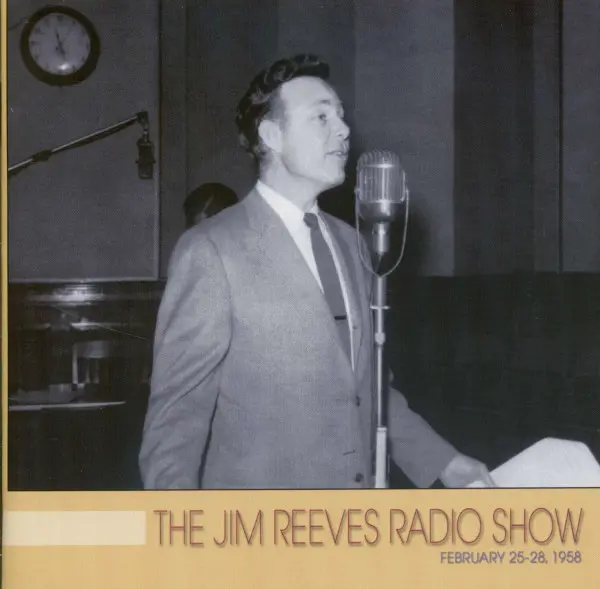
Ready to ship today, delivery time** appr. 1-3 workdays

Ready to ship today, delivery time** appr. 1-3 workdays

Ready to ship today, delivery time** appr. 1-3 workdays
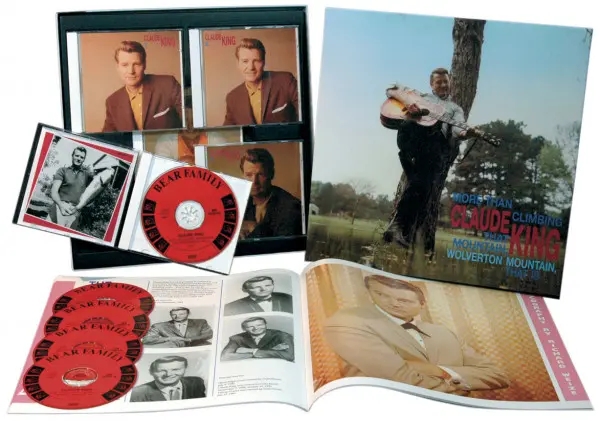
the very last 2 available
Ready to ship today, delivery time** appr. 1-3 workdays
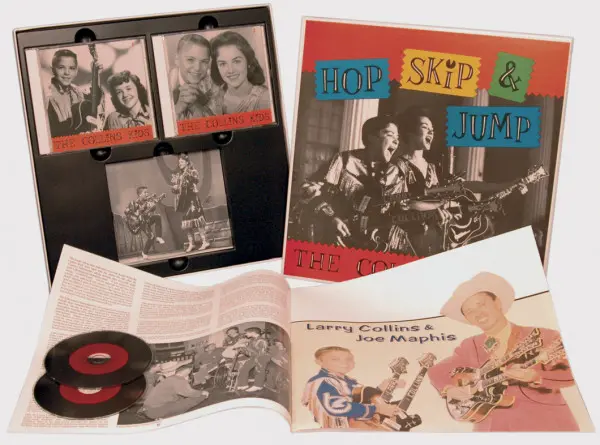
This article is deleted and can no longer be ordered!

Ready to ship today, delivery time** appr. 1-3 workdays

the very last 1 available
Ready to ship today, delivery time** appr. 1-3 workdays
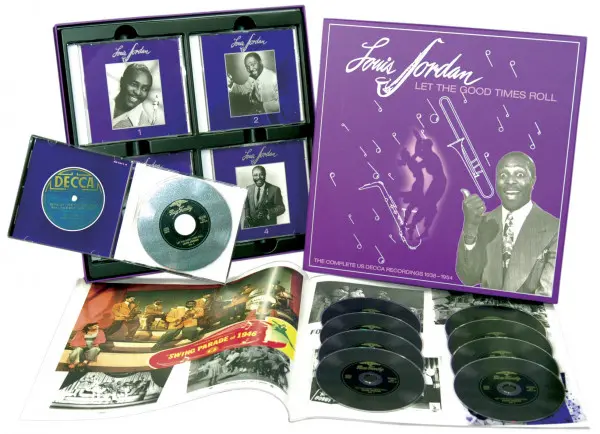
Item has to be restocked

Ready to ship today, delivery time** appr. 1-3 workdays
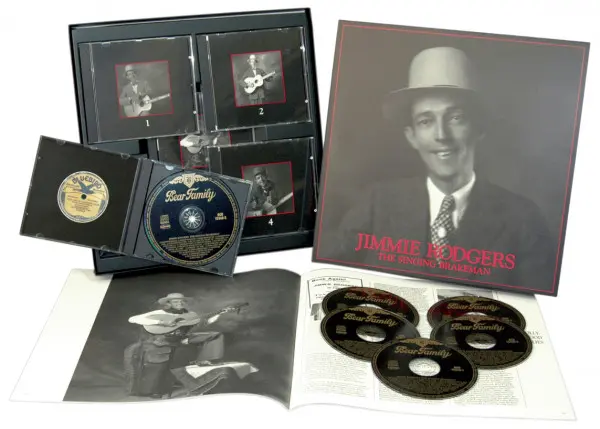
the very last 2 available
Ready to ship today, delivery time** appr. 1-3 workdays
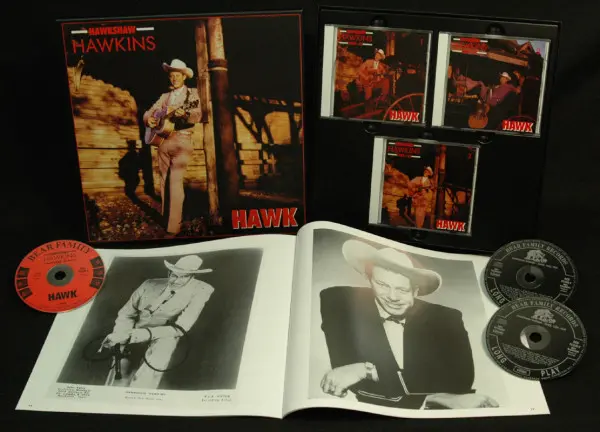
Ready to ship today, delivery time** appr. 1-3 workdays




